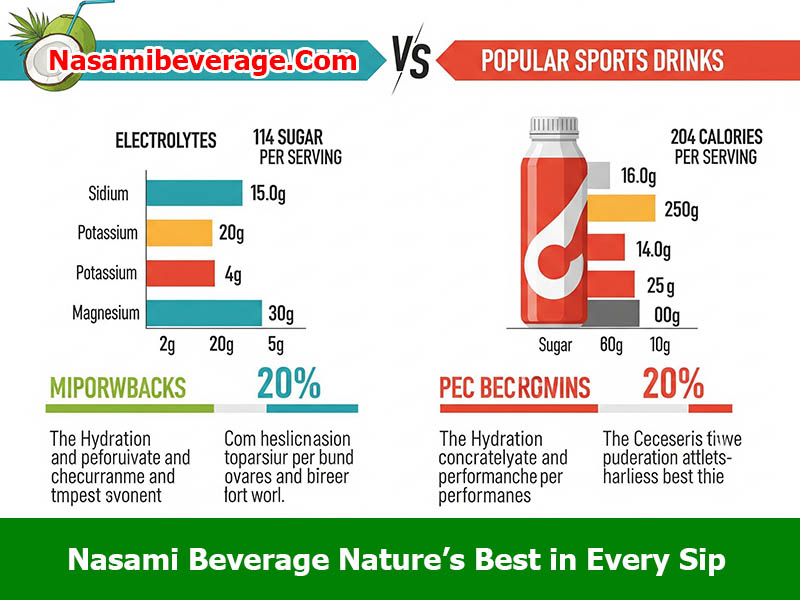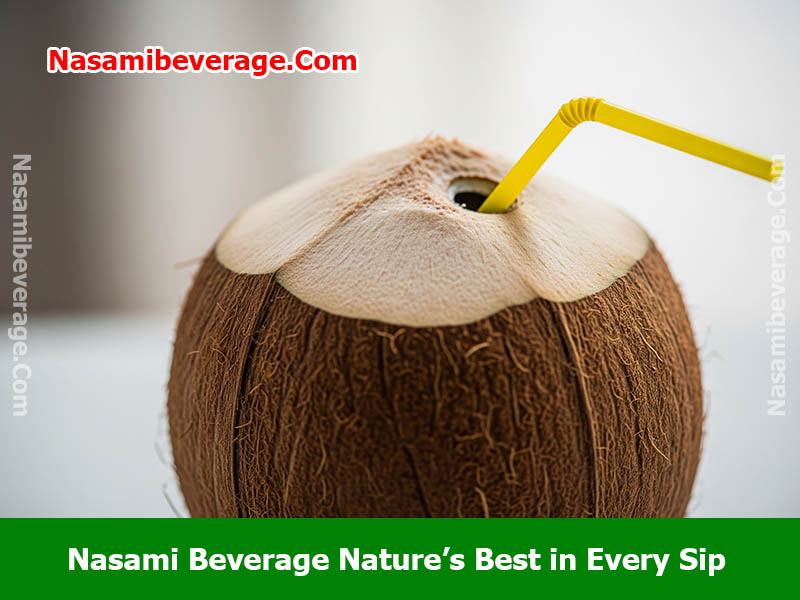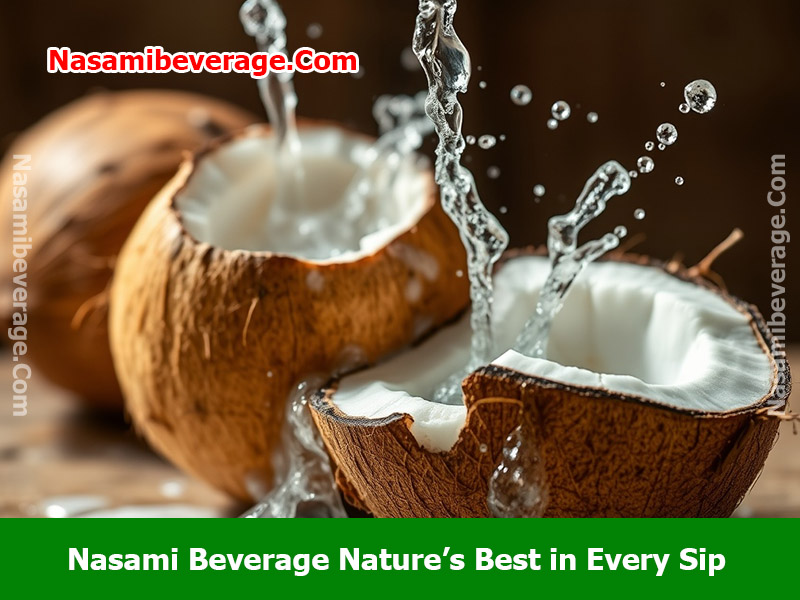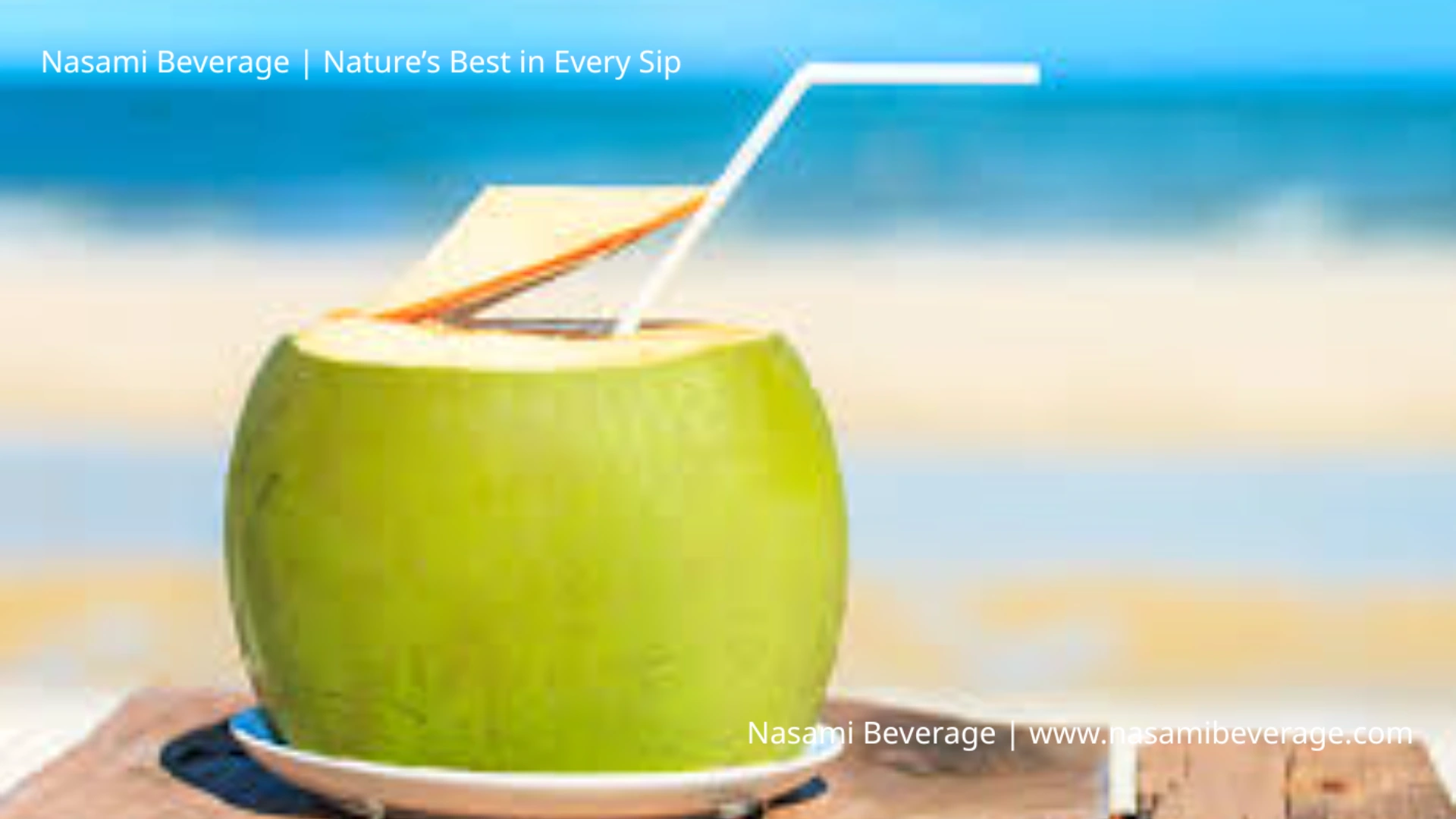Choosing the right beverage to stay hydrated, especially around exercise, often leads to the great debate: coconut water vs sports drinks. Both promise to replenish fluids and essential nutrients, but they are vastly different in their composition and ideal use cases. This article will delve into a comprehensive comparison, examining their nutritional profiles, hydration effectiveness, and overall benefits and drawbacks to help you make an informed choice for your specific needs. We will explore what defines each drink, how they stack up nutritionally, their effectiveness in various scenarios, and ultimately, which might be the superior option for you.
Understanding the contenders: What are they?
Before comparing them, it’s crucial to understand what each beverage fundamentally is. They originate from different sources and are designed with different primary purposes in mind.
Defining coconut water: Nature’s hydrator
Coconut water is the clear liquid found inside young, green coconuts. It has gained global popularity as a refreshing drink, valued for its natural sugars, electrolytes, and vitamins. Unlike coconut milk, which is a processed product made from the flesh of mature coconuts, coconut water is lower in fat and calories. Its slightly sweet, nutty taste is a hallmark of its unprocessed nature.
Defining sports drinks: Engineered for performance
Sports drinks, on the other hand, are scientifically formulated beverages designed to help athletes rehydrate, replace electrolytes lost through sweat, and provide carbohydrates for energy during and after intense or prolonged physical activity. Brands like Gatorade and Powerade are well known examples.

These drinks typically contain a strategic blend of water, carbohydrates (often in the form of sugars like glucose, sucrose, and fructose), and electrolytes, primarily sodium and potassium, to optimize absorption and energy delivery.
Nutritional deep dive: Coconut water vs sports drinks
The core differences between coconut water and sports drinks lie in their nutritional makeup. Understanding these variations is key to choosing the right drink.
Electrolyte profile: Potassium power vs sodium balance
Electrolytes are minerals crucial for many bodily functions, including nerve signaling, muscle contraction, and maintaining fluid balance. Both coconut water and sports drinks provide electrolytes, but in different proportions.
Coconut water is particularly rich in potassium, an electrolyte important for heart function and muscle contractions, and many often wonder does coconut water have electrolytes in significant amounts; the answer is yes, also containing magnesium and smaller quantities of sodium and calcium.
Sports drinks are specifically formulated to contain higher levels of sodium, along with potassium. Sodium is the primary electrolyte lost in sweat and is critical for maintaining fluid balance and preventing hyponatremia (low sodium levels) during extended periods of exertion. While they contain potassium, the emphasis is often on a sodium carbohydrate solution for rapid fluid absorption.
Sugar content and caloric impact
Sugar and calorie content are significant differentiators and can influence your choice based on activity level and dietary goals.
Coconut water contains natural sugars, primarily glucose and fructose, which provide a source of energy. The amount can vary depending on the age of the coconut and brand. While these are natural, they still contribute to the overall calorie count, and it’s useful to know how many calories in coconut water when comparing it to other beverages, which is generally lower than that of many sports drinks.

Sports drinks often contain higher levels of added sugars, such as sucrose, glucose syrup, and high fructose corn syrup. These are included to provide readily available energy for working muscles. However, this high sugar content also means a higher calorie count, which may not be desirable for individuals engaged in light to moderate exercise or those watching their sugar intake. Some sports drinks also use artificial sweeteners to reduce calorie content.
Vitamins, minerals, and other components
Beyond the primary electrolytes and sugars, other components add to the nutritional profile of these beverages.
Coconut water naturally contains various vitamins, such as B vitamins and vitamin C, along with enzymes and amino acids. While not present in massive quantities, these contribute to its overall nutritional value as a more wholesome, less processed beverage.
Sports drinks are generally not significant sources of vitamins unless they are specifically fortified. Many contain artificial colors, flavors, and preservatives to enhance palatability and shelf life. These additives are a concern for individuals seeking more natural hydration options.
Hydration effectiveness: Which quenches thirst better and when?
The effectiveness of coconut water versus sports drinks for hydration largely depends on the context of your activity and individual needs.
Everyday hydration: Is coconut water sufficient?
For general daily hydration, particularly in hot weather or after light activities, the question of does coconut water help with hydration can be answered positively; it can be an excellent choice. Its pleasant taste and natural electrolyte content, especially potassium, can help replenish fluids effectively. It is generally considered more hydrating than plain water for some due to these electrolytes. However, plain water remains the gold standard for everyday hydration for most people due to its zero calorie and zero sugar content.
Intense exercise & endurance: The role of sports drinks

During intense exercise lasting more than 60 to 90 minutes, or in very hot and humid conditions leading to significant sweat loss, sports drinks often have an edge. Their higher sodium content is crucial for replacing sweat losses, maintaining thirst drive, and preventing muscle cramps. The carbohydrates in sports drinks also provide sustained energy, which is vital for endurance athletes to maintain performance levels.
Post-workout recovery: Replenishing lost nutrients
Both beverages can play a role in post workout recovery. Coconut water helps rehydrate and restore potassium levels. However, for rapid recovery after very strenuous workouts, a sports drink might be more effective due to its higher sodium and carbohydrate content, which aids in quicker glycogen store replenishment and fluid balance restoration. Some individuals prefer to consume coconut water and then a balanced meal to cover all recovery needs.
Benefits and drawbacks: Weighing your options
Each drink comes with its own set of pros and cons.
Advantages of choosing coconut water
One of the biggest draws of coconut water is its natural origin, forming part of the many advantages of drinking coconut water. It typically contains no added sugars (though always check the label, as some brands add them), artificial colors, flavors, or preservatives. This makes it a cleaner option for those wary of processed ingredients.
Some studies suggest coconut water may have antioxidant properties and could contribute to heart health due to its potassium content. While more research is needed, its natural nutrient profile is generally seen as beneficial.
Potential downsides of coconut water
For athletes engaged in very intense, long duration activities with high sweat rates, coconut water’s relatively low sodium content might not be sufficient to replace losses adequately. This could potentially increase the risk of hyponatremia in extreme cases if it’s the sole hydration source.
While generally lower in calories than many sports drinks, the calories from the natural sugars in coconut water can add up if consumed in large quantities. It also tends to be more expensive than most sports drinks.
Advantages of opting for sports drinks
Sports drinks are scientifically formulated to provide a balanced ratio of fluids, electrolytes (especially sodium), and carbohydrates. This design facilitates rapid absorption and helps refuel muscles quickly during and after strenuous exercise.

Many athletes find the taste of sports drinks more palatable during intense workouts, which can encourage them to drink more and stay better hydrated. The variety of flavors available also caters to different preferences.
Potential downsides of sports drinks
The high sugar content in many sports drinks can contribute to excessive calorie intake, dental erosion, and may not be suitable for individuals with certain health conditions like diabetes. The presence of artificial colors, flavors, and sweeteners is also a concern for many health conscious consumers.
For individuals engaging in light to moderate exercise for less than an hour, the extra sugar and electrolytes in sports drinks are often unnecessary. Water is typically sufficient, and consuming sports drinks can lead to an unneeded intake of sugar and calories.
Making the right choice for your needs
The decision between coconut water and sports drinks is not one size fits all. It depends on your activity level, duration, intensity, and personal health goals.
For casual exercisers and light activity
If you are engaging in light exercise like walking, yoga, or a short gym session (under 60 minutes), plain water is usually the best choice. However, if you prefer a flavored drink or want some natural electrolytes, coconut water can be a refreshing and healthier alternative to sugary sports drinks.
For moderate to high-intensity athletes
For athletes involved in moderate to high intensity training sessions lasting 60 to 90 minutes or longer, or those exercising in extreme heat, sports drinks may be more beneficial. Their targeted formulation of carbohydrates and sodium helps maintain energy levels and electrolyte balance more effectively during prolonged exertion. Some athletes may also use coconut water during shorter, less intense sessions or as part of their broader hydration strategy, leading many to ask is coconut water good for athletes in all scenarios.
For specific health conditions or dietary preferences
Individuals with diabetes or those managing their sugar intake should be cautious with both, but especially with high sugar sports drinks. Unsweetened coconut water in moderation might be a better option. Those looking to avoid artificial ingredients will naturally gravitate towards pure coconut water. As Hippocrates wisely said, “Let food be thy medicine and medicine be thy food,” highlighting the value of natural choices when appropriate.
Beyond the bottle: Other factors to consider
Beyond the nutritional science, practical aspects can also influence your choice.
Cost comparison
Generally, sports drinks are more budget friendly than coconut water, especially if consumed regularly. The cost of natural, high quality coconut water can be a significant factor for some.
Taste preferences
Taste is subjective. Some people love the unique, slightly sweet and nutty flavor of coconut water, while others prefer the often sweeter and more varied flavors of sports drinks. Adherence to a hydration plan can be influenced by how much you enjoy what you are drinking.
Environmental impact
The environmental footprint can also be a consideration. Coconut water often comes in Tetra Paks or cans, while sports drinks are commonly sold in plastic bottles. The sustainability of sourcing coconuts versus manufacturing sports drinks can also be a complex issue to weigh.
Frequently asked questions (FAQs)
Can I drink coconut water every day instead of sports drinks?
Yes, for general hydration and light activity, coconut water can be a daily beverage. It’s generally healthier than consuming sugary sports drinks daily if you are not engaging in intense, prolonged exercise, as sports drinks can contribute unnecessary sugar and calories.
Which has more sugar: coconut water or a typical sports drink?
Typically, sports drinks contain more added sugar per serving than natural coconut water. However, some commercially packaged coconut waters may have added sugars, so it is important to read the label. Natural coconut water’s sugar content is usually lower.
Is coconut water good for rehydration after sweating a lot?
Coconut water can help with rehydration due to its fluid and electrolyte content, particularly potassium. However, after very heavy sweating (e.g., endurance sports, extreme heat), a sports drink with higher sodium content might be more effective for rapidly restoring electrolyte balance.
Are there any athletes who specifically prefer coconut water over sports drinks?
Yes, some athletes, particularly those who prefer natural products or are engaged in activities of moderate intensity or duration, may choose coconut water. It is also sometimes used in conjunction with other hydration or nutrition strategies. The choice often comes down to personal preference, tolerance, and specific training needs.
In conclusion, both coconut water and sports drinks have their place. Coconut water shines as a natural, potassium rich hydrator suitable for everyday refreshment and light exercise. Sports drinks are engineered tools for athletes needing rapid replenishment of fluids, electrolytes (especially sodium), and energy during intense, prolonged activities. By understanding the coconut water vs sports drinks debate through their nutritional content and intended uses, you can select the beverage that best supports your hydration needs, activity level, and overall health goals. Always remember to listen to your body and consult with a healthcare professional or a registered dietitian if you have specific concerns, and for more insights into healthy beverage choices, consider resources like Nasami Beverage.



